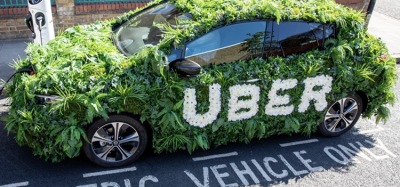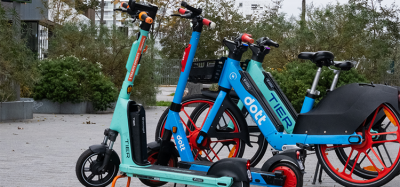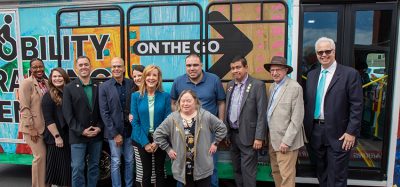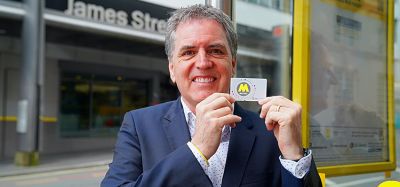London’s Ultra Low Emission Zone to be expanded to all boroughs
- Like
- Digg
- Del
- Tumblr
- VKontakte
- Buffer
- Love This
- Odnoklassniki
- Meneame
- Blogger
- Amazon
- Yahoo Mail
- Gmail
- AOL
- Newsvine
- HackerNews
- Evernote
- MySpace
- Mail.ru
- Viadeo
- Line
- Comments
- Yummly
- SMS
- Viber
- Telegram
- Subscribe
- Skype
- Facebook Messenger
- Kakao
- LiveJournal
- Yammer
- Edgar
- Fintel
- Mix
- Instapaper
- Copy Link
Posted: 30 November 2022 | Intelligent Transport | No comments yet
In addition to expanding the ULEZ, a number of initiatives will be introduced to support more Londoners, including a new scrappage scheme for people who have disabilities or are on lower incomes and the biggest expansion of outer London’s bus network.
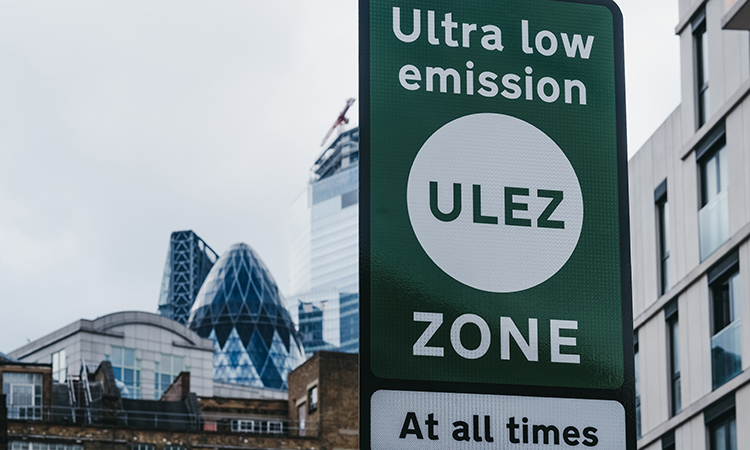

The Mayor of London, Sadiq Khan, has announced that the Ultra Low Emission Zone (ULEZ) will be expanded London-wide to tackle the triple threats of air pollution, the climate emergency and congestion, and to ensure that five million more Londoners can breathe cleaner air.
The expansion will come into effect on 29 August 2023 and will operate across all London boroughs, up to the existing Low Emission Zone boundary.
Toxic air pollution has severe health impacts, with around 4,000 Londoners dying prematurely each year, children growing up with stunted lungs and a higher risk of dementia in older people. More than 500,000 Londoners live with asthma and are more vulnerable to the impacts of toxic air, with more than half of these people living in outer London boroughs.
The ULEZ has already been successful in central and inner London, helping to reduce roadside pollution levels by 44 per cent in central London and 20 per cent in inner London.
Expanding the ULEZ London-wide will help strike the best balance between maximising the health and environmental benefits for Londoners, while minimising the cost to drivers. According to research, toxic air caused by road traffic is still leading to thousands of deaths a year, and the greatest number of deaths attributable to air pollution are in London’s outer boroughs, which the ULEZ doesn’t currently cover.
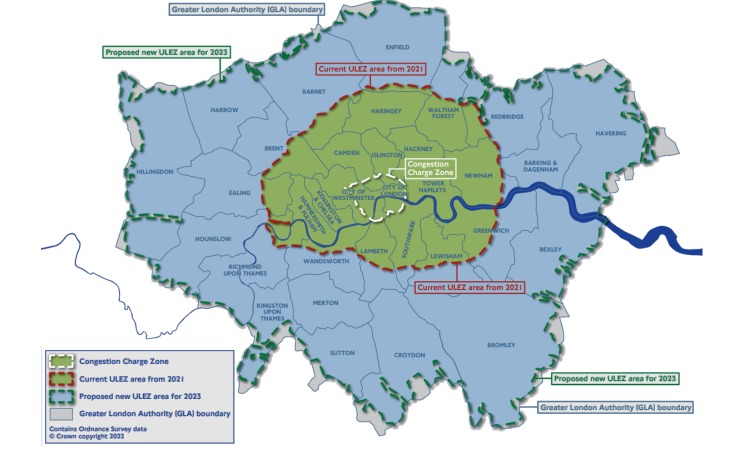

Credit: Transport for London
Expanding ULEZ London-wide will save 27,000 tonnes of CO2 in outer London, nearly double that which the central London ULEZ had achieved in its first year of operation. Amongst other improvements, the expansion is forecast to make further progress to reduce air pollution, by reducing nitrogen oxides (NOx) emissions from cars and vans in outer London by 10 and seven per cent respectively.
Toxic air is also an issue of social justice, with the poorest Londoners and Londoners from ethnic minority backgrounds least likely to own a car but also worst affected by toxic air. Only five per cent of the lowest income Londoners own a car yet they are around 10 per cent more likely to suffer from toxic air.
Compliance within the current ULEZ area is now at 94 per cent, much higher than the 39 per cent when ULEZ had first been announced in 2017, and also higher than 85 per cent the month before previous expansion, and compliance in outer London is already around 85 per cent. This means that most drivers in outer London will not be impacted by the expansion London-wide.
The announcement follows a public consultation which ran between May and July 2022, in which 59 per cent of respondents agreed that more needed to be done to tackle toxic air. A representative YouGov poll commissioned by City Hall also revealed nearly twice as many Londoners believed that the Mayor’s proposed expansion of the ULEZ should go ahead than oppose it.
Supporting London residents
New scrappage scheme
In order to support Londoners through the cost-of-living crisis, the expansion will be accompanied by a brand new £110 million scrappage scheme to support Londoners on lower incomes, disabled Londoners, charities and small businesses and sole traders.
Successful scrappage applicants will receive a grant to scrap or – for the first time – retrofit their vehicle for certain vans and minibuses. Successful car owners can opt to receive a smaller grant accompanied by up to two free annual bus and tram passes, which would give them a higher financial package.
Supportive measures for disabled people
The Mayor has also announced new measures to support disabled people, including extending the existing exemption periods for London’s disabled drivers and community transport minibuses run by not-for-profit organisations to October 2027 and October 2025 respectively, and introducing new exemption periods for disabled drivers and wheelchair accessible vehicles. This will mean that over a quarter of a million disabled Londoners could be eligible for the new exemption periods, including those who automatically qualify for a Blue Badge. The Mayor is providing further support through scrapping the fee for drivers to sign up to Auto-Pay for the ULEZ and Congestion Charge.
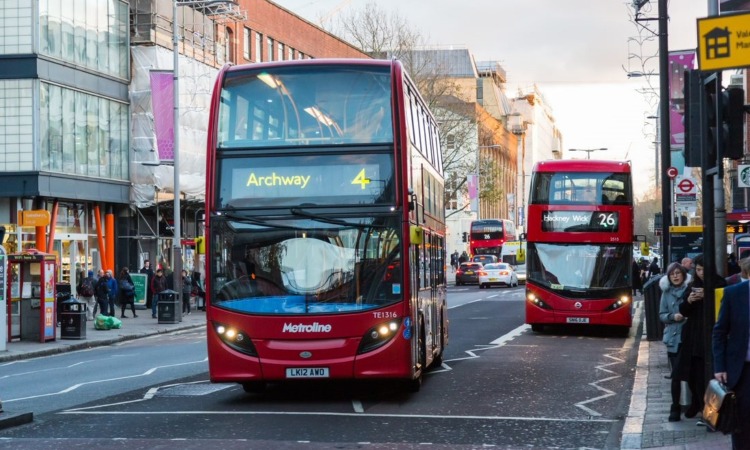

Credit: Transport for London
Bus network improvements
To maximise the potential benefits of expanding the ULEZ and strengthen alternatives to private cars, the Mayor has also announced a plan for improving the bus network in outer London. Two new routes will be introduced in Sutton, with improved service to the new Cancer Hub at the Royal Marsden Hospital. In east London, new zero-emission cross-river services will be introduced, subject to consultation.
New services and improvements, that will see over one million further kilometres added to the bus network, are also planned to support growth areas in a number of other outer London location. This is part of the biggest ever expansion of the bus network in outer London.
The Mayor of London, Sadiq Khan, said: “Expanding the ULEZ London-wide will mean five million more people will be able to breathe cleaner air and live healthier lives. The rising cost-of-living has been a key consideration for me. That’s why I’m announcing that we will be introducing our biggest scrappage scheme yet – £110 million – to support Londoners on lower incomes, disabled Londoners, small businesses and charities to scrap or retrofit their non-compliant vehicles. All the money raised by ULEZ will be pumped back into funding local public transport and I’m pleased to announce today (25 November 2022) that we are planning the biggest ever expansion of the bus network in outer London.”
Alex Williams, TfL’s Chief Customer and Strategy Officer, said: ”Expanding the ULEZ is vital for public health in this city. We know that there are more deaths that are attributed to toxic air in the city’s outer boroughs and that bringing in these world leading standards over a larger area will see millions more breathing cleaner air. Our experience of these schemes shows that they work, with significant reductions in pollution since the first zone was introduced in 2019.”
Related topics
Air Quality, Public Transport, Transport Governance & Policy
Related modes
Bus & Coach
Related cities
London
Related countries
United Kingdom
Related organisations
UK Government
Related people
Alex Williams, Sadiq Khan




